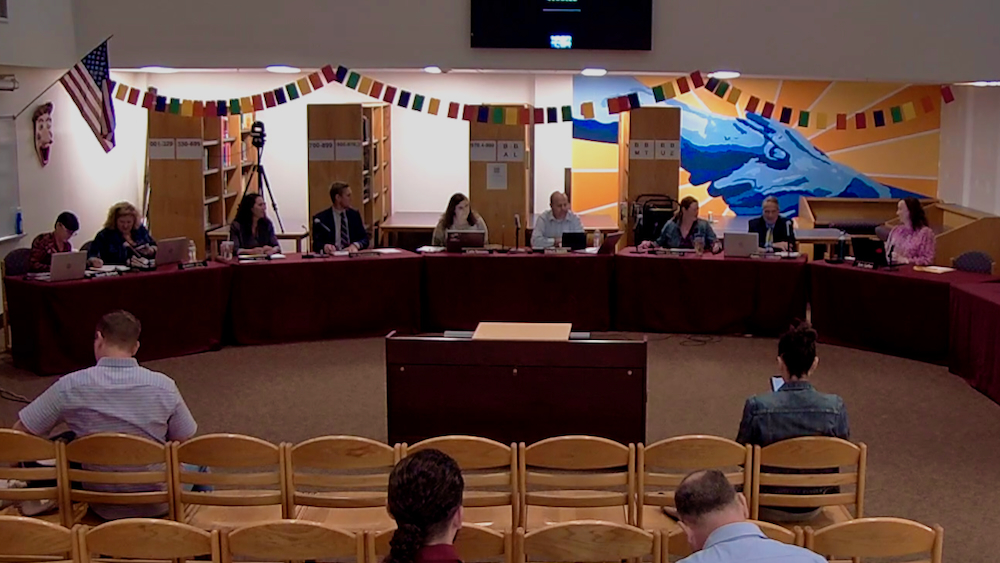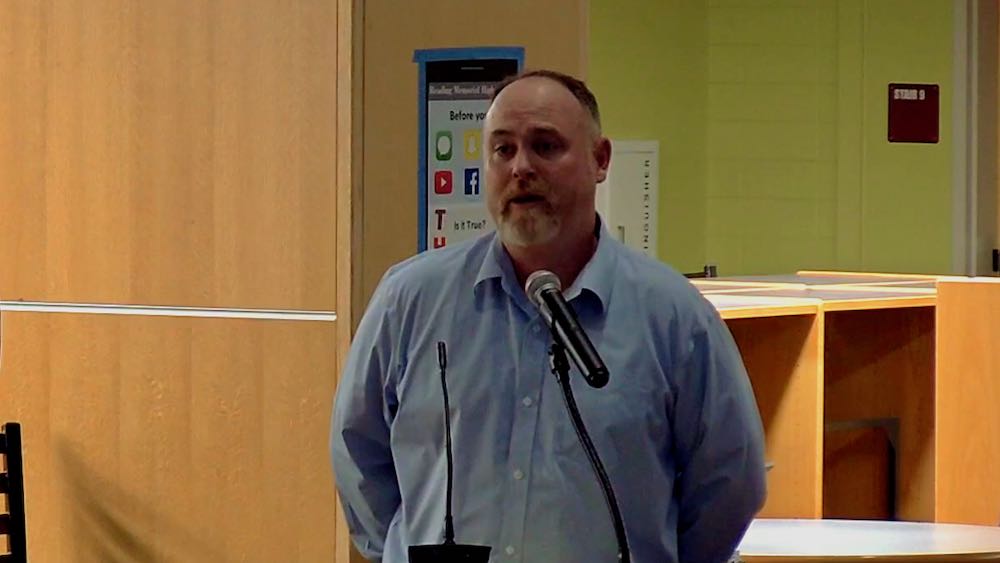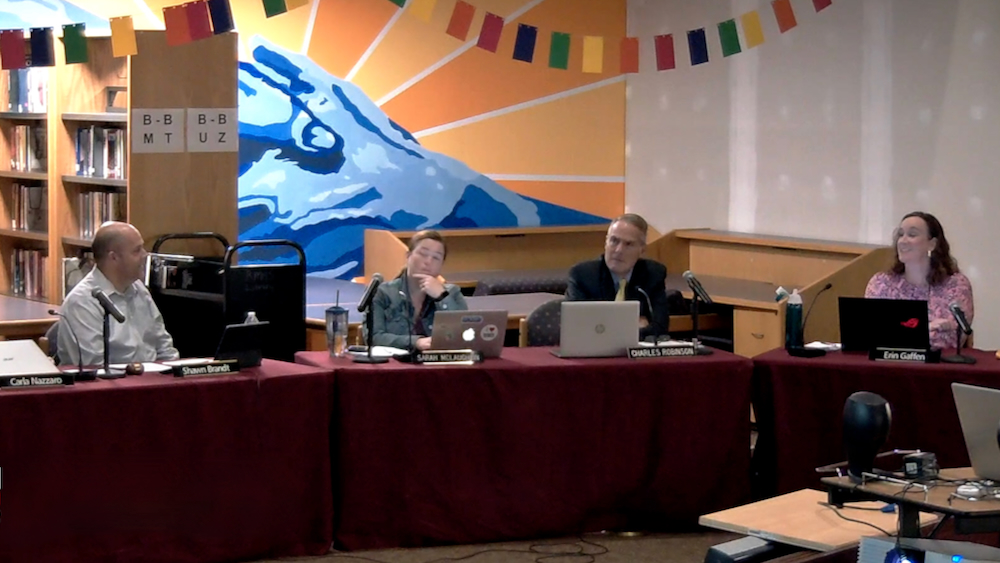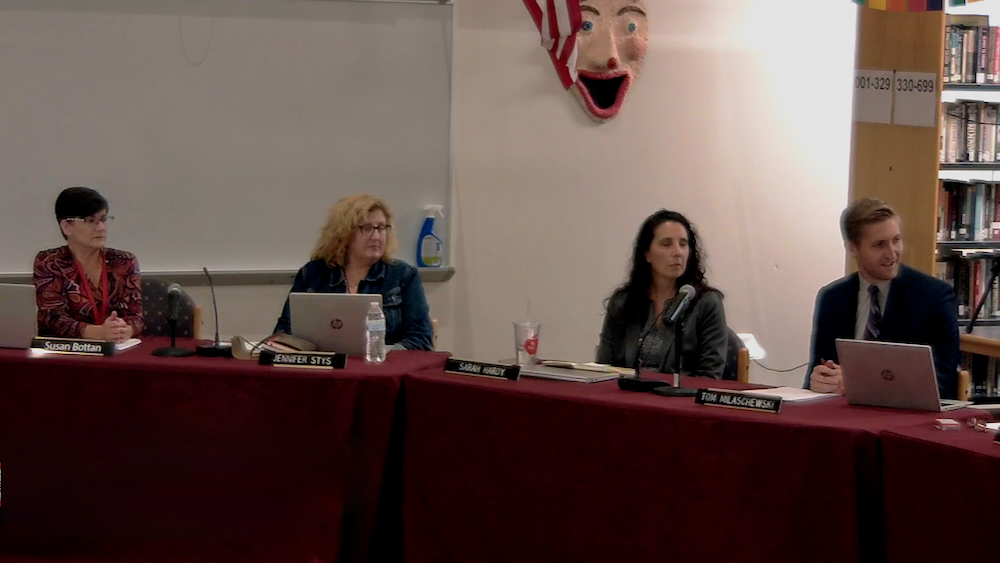
Reading, MA — Thursday night, the School Committee voted 5-0 to send the Select Board a warrant article for November Town Meeting which asks Town Meeting to approve $2.2 million for a feasibility study for a proposed Killam Elementary School project. School Committee member Erin Gaffen, while in full support of the project, objected to some of the language in the introduction provided for the warrant report. After some community input, Chair Shawn Brant had included language which, to Gaffen, suggested that the study, and therefore the project, was not focused on district-wide needs as well as facility issues at Killam. “The whole point [of the project] is to address space needs,” Gaffen argued. Gaffen continued by reminding the committee that the original study which led the committee to this point was a district-wide space needs assessment by Gienapp Architects.
9.15.22While agreeing in concept with Gaffen, Brandt indicated that he wanted the introduction to be as transparent as possible about the possible outcomes of the feasibility study, which may or may not include a larger school building than presently exists on the site. The committee agreed to soften the language in the introduction, and a vote approved the amended introduction 5-0. The Select Board will vote on inclusion of this and the other possible 22 articles on the warrant at its September 20 meeting.

Director of Extended Day Services Chris Nelson provided the School Committee with an update regarding pay level streamlining and increases in his program. Nelson recommends that the pay levels be collapsed to just two, site coordinators and teachers. The previous model had multiple levels for teachers and assistants in the program, which Nelson shared was not reflective of the type of work being done by the employees. Nelson also reported that, while there had been small cost of living adjustments over the years, base pay rates in the program had not been addressed since 2012.

The new rates, while representing significant increases of 21.63% for site coordinators and 20.93% for teachers, will raise Reading’s pay scale from one of the lowest in the area to the middle range of what other communities pay for after-school workers. Nelson indicated that these new rates would make Reading more competitive when seeking new employees, aid in employee retention, and help increase capacity in the program, which currently has a waiting list of 101 families. Nelson did indicate that the goal is to keep prices for families the same despite the raises.
School Committee member Chuck Robinson questioned if the program, which is self-sustaining, could maintain these increases. Director of Finance Susan Bottan reported that if the program is fully staffed and fully subscribed, then the increases are financially achievable. “In terms of sustainability, it works,” Bottan declared. No School Committee vote was needed.

Superintendent of Schools Thomas Milaschewski reported on updates to the district improvement plan for the coming year. Milaschewski shared that the updates build upon the framework established by the previous administration, as this is the final year of a three-year plan. The first of the three primary objectives presented is establishing a supportive and safe learning environment. This includes building a shared understanding for students about a sense of belonging in school. “Healthy and safe environments are a prerequisite for achieving equity in schools,” Milaschewski stated. “We see a strong tie between a sense of belonging and equity.”
The second objective is to develop coherent instructional systems, develop rigorous instructional practices, and use high-quality materials. Milaschewski explained that this means teaching to the rigor, not just the base of each educational standard. “We believe that equity in schools is best achieved through high-quality instruction,” Milaschewski opined.
The third objective of improving school operations was amended from the original as the original was developed with a pandemic mindset. Milaschewski indicated that systems such as food service were being evaluated and changes implemented.
Milaschewski shared that greater detail on specifics and measurable expected outcomes will be discussed at the next School Committee meeting. Brandt complemented the work stating, “It builds nicely on what was already in place.” The committee voted 5-0 to approve the plan.
The committee concluded by reviewing and approving a new district-wide handbook by a 5-0 vote. Brandt indicated that there would be votes on school-specific handbooks once they had a chance to be aligned with the district handbook. Milaschewski explained that the idea of a district-wide handbook had been “bubbling around” for a few years and that the new approach would organize and consolidate practices, policies, and procedures that should be consistent throughout all the schools.
Robinson asked who would be responsible for “owning” the work going forward, ensuring it is kept up to date. Director of Student Services Jennifer Stys indicated that that would fall under her portfolio of responsibilities.
The School Committee adjourned at 9:15 pm.
